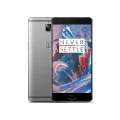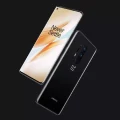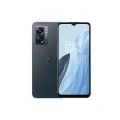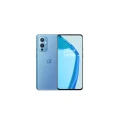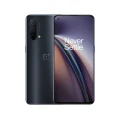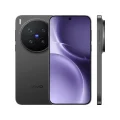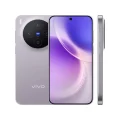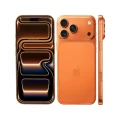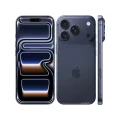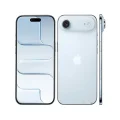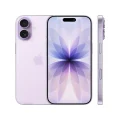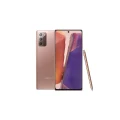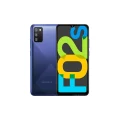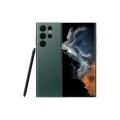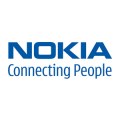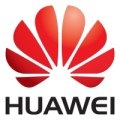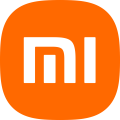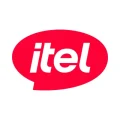- Home
- All Products
- OnePlus
- OnePlus 9
OnePlus 9
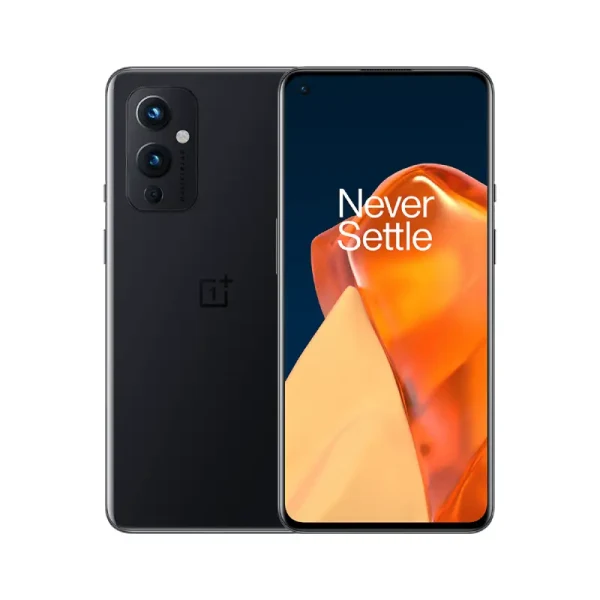

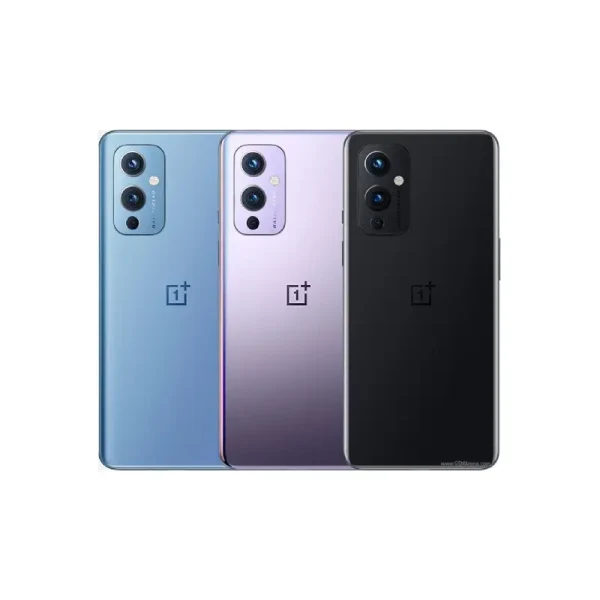
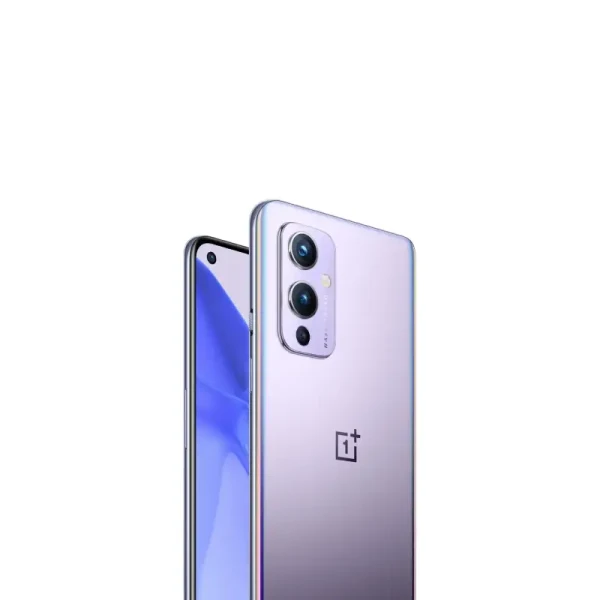
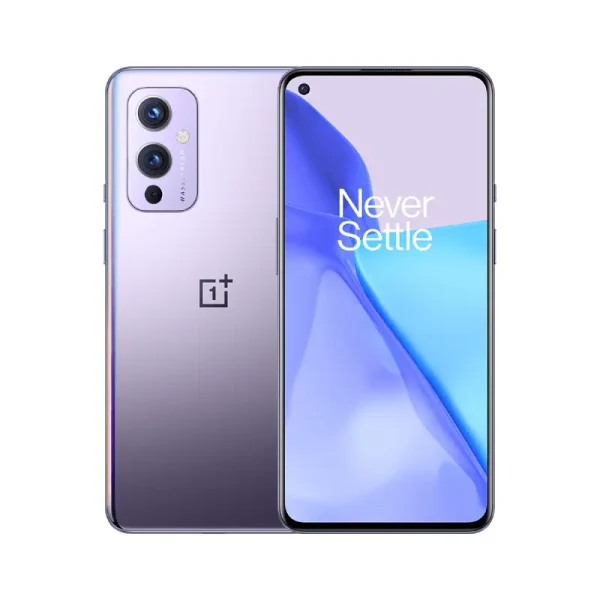
-
Battery: Li-Po 4500 mAh
-
RAM: 8GB, 12GB
-
Storage: 128GB, 256GB
-
Display: Fluid AMOLED, 6.55 inches
-
Camera: Rear 48 MP+50 MP+2 MP, and Front 16 MP
-
OS: Android 11, upgradable to Android 13, OxygenOS 13
Full Specifications
Price
| Official | Not Available |
| Unofficial | About 42499 BDT 8GB/128GB, 46999 BDT 12GB/256GB Exp. |
General
| Model | OnePlus 9 |
| Announced | 2021, March 23 |
| Released | 2021, March 26 |
| Status | Available |
Design
| Dimensions | 160 x 74.2 x 8.7 mm (EU/NA), 160 x 73.9 x 8.1 mm (IN/CN) |
| Weight | 192 g (EU/NA), 183 g (IN/CN) (6.46 oz) |
| SIM SIM (Subscriber Identity Module) is a small card that contains mobile network subscriber's account information. This allows the phone using the card to attach to a mobile network. The SIM card is most commonly associated with GSM and UMTS mobile networks. Moving a SIM card from one phone to another allows a subscriber to switch mobile phones without having to contact their mobile network carrier. SIM cards can also be used by a phone to store limited amounts of data, such as phone numbers and text messages. |
Single SIM (Nano-SIM) or Dual SIM (Nano-SIM, dual stand-by) IP68 (T-Mobile version only) |
| Colors |
Winter Mist, Arctic Sky, Astral Black |
Display Specification
| Display Type Display Technology => A number of display technologies and types used in mobile phones => TFT (Thin Film Transistor), IPS (In-Place Switching), OLED (Organic Light Emitting Diode), AMOLED (Active-Matrix Organic Light-Emitting Diode), Super AMOLED (an even advanced version of AMOLED), Resistive Touchscreen (Resistive touchscreens contain two layer of conductive material with a very small gap between them which acts as a resistance), Capacitive Touchsceen (Capacitive touchscreen technology consists of a layer of glass coated with a transparent conductor) | Fluid AMOLED |
| Size | 6.55 inches, 103.6 cm2 |
| Resolution | 1080 x 2400 pixels, 20:9 ratio |
| Refresh Rate | 120Hz |
| Pixel Density Pixel Density (PPI) is refers to the concentration of pixels on a particular display, measured in pixels per inch (ppi). Pixel density is calculated by dividing the diagonal pixel resolution of a display by its diagonal size, higher pixel density better display quality. | 402 ppi density |
| Display Protection Display Protection => Gorilla Glass is a special alkali-aluminosilicate glass shield with exceptional damage resistance that helps protect mobile displays from scratches, drops, and bumps of everyday use, It is always better to go for a smartphone with Gorilla Glass for that added protection and peace of mind. | Corning Gorilla Glass 5 |
| Features |
HDR10+, 1100 nits (peak) 87.6% screen-to-body ratio Always-on display |
Platform
| Operating System OS => Every computer system run on a base software called Operating System (OS). Operating System controls all basic operations of the computer (such as smartphone, PDAs, tablet computers and other handheld devices). The Operating System allows the user to install and run third party applications (apps), apps are used to add new functionality to the device. | Android 11, upgradable to Android 13, OxygenOS 13 |
| Chipset Chipset is a group of integrated circuits designed to perform one or a more dedicated functions, often with real time computing constraints, Popular smartphones are equipped with more advanced embedded chipsets that can do many different tasks depending on their programming. | Qualcomm SM8350 Snapdragon 888 5G (5 nm) |
| CPU CPU (Central Processing Unit) mostly known as processors, CPU processes instructions in order to carry out certain functions that make your device operate properly. Processors are often described as the brain of computers, smartphones and tablets, Smartphones and tablets rely on processors to carry out their every task, Processors are an incredibly important factor in selecting any type of computing device, including your smartphone. | Octa-core (1x2.84 GHz Cortex-X1 & 3x2.42 GHz Cortex-A78 & 4x1.80 GHz Cortex-A55) |
| GPU GPU (Graphics Processing Unit) is a single-chip processor designed to rapidly manipulate and alter memory to accelerate the creation of images in a frame buffer intended for output to a display, This includes things such as lighting effects, object transformations, and 3D motion. | Adreno 660 |
Main Camera
| Camera Setup | Triple |
| Resolution |
48 MP, f/1.8, 23mm (wide), 1/1.43", 1.12µm, multi-directional PDAF 50 MP, f/2.2, 14mm (ultrawide), 1/1.56", 1.0µm, AF 2 MP, f/2.4, (monochrome) |
| Features |
Hasselblad Color Calibration, dual-LED flash, HDR, panorama |
| Video | 8K@30fps, 4K@30/60fps, 1080p@30/60/240fps, Auto HDR, gyro-EIS |
Selfie Camera
| Camera Setup | Single |
| Resolution |
16 MP, f/2.4, (wide), 1/3.06", 1.0µm |
| Video | 1080p@30fps, gyro-EIS |
| Features |
Auto-HDR |
Network & Connectivity
| Technology | GSM / CDMA / HSPA / LTE / 5G |
| Speed | HSPA 42.2/5.76 Mbps, LTE-A (CA) Cat20 2000/200 Mbps, 5G |
| Wi-fi Wi-Fi is a popular wireless networking technology using radio waves to provide high-speed network connections that allows devices to communicate without cords or cables, Wi-Fi is increasingly becoming the preferred mode of internet connectivity all over the world. | Wi-Fi 802.11 a/b/g/n/ac/6, dual-band, Wi-Fi Direct, DLNA |
| Bluetooth Bluetooth is a wireless communications technology for exchanging data between mobile phones, headsets, computers and other network devices over short distances without wires, Bluetooth technology was primarily designed to support simple wireless networking of personal consumer devices. | 5.2, A2DP, LE, aptX HD |
| NFC NFC (Near field communication) is a set of standards for smartphones and similar devices to establish peer-to-peer radio communications with each other by touching them together or bringing them into proximity, usually no more than a few inches. | Yes |
| Positioning |
GPS (L1+L5), GLONASS (G1), BDS (B1), GALILEO (E1+E5a) |
| FM Radio | No |
| USB | USB Type-C 3.1, OTG |
| 2G Network |
GSM 850 / 900 / 1800 / 1900 - SIM 1 & SIM 2 CDMA 800 / 1900 |
| 3G Network |
HSDPA 800 / 850 / 900 / 1700(AWS) / 1800 / 1900 / 2100 |
| 4G Network |
1, 2, 3, 4, 5, 7, 8, 12, 13, 17, 18, 19, 20, 25, 26, 28, 32, 38, 39, 40, 41, 66 - EU 1, 2, 3, 4, 5, 7, 8, 12, 13, 17, 18, 19, 20, 25, 26, 28, 30, 32, 38, 39, 40, 41, 46, 48, 66, 71 - NA 1, 2, 3, 4, 5, 7, 8, 12, 17, 18, 19, 20, 26, 34, 38, 39, 40, 41, 46 - IN 1, 2, 3, 4, 5, 7, 8, 12, 17, 18, 19, 20, 26, 34, 38, 39, 40, 41 - CN |
| 5G Network |
1, 3, 5, 7, 8, 20, 28, 38, 40, 41, 66, 78 SA/NSA - EU 1, 2, 3, 5, 7, 8, 20, 25, 28, 38, 40, 41, 48, 66, 71, 77, 78 SA/NSA - NA 41, 78 SA/NSA - IN 1, 3, 28, 41, 78, 79 SA/NSA - CN |
Battery
| Battery Type Battery Type => Cell phones run on various kinds of batteries depending on the manufacturer, phone size or shape and features. There are basically four types of cell phone batteries => Lithium Polymer, Lithium Ion, Nickel Metal Hydride and Nickel Cadmium. | Li-Poly (Lithium Polymer) |
| Capacity Battery Capacity is a measure (typically in Amp-hr) of the charge stored by the battery, and is determined by the mass of active material contained in the battery. The battery capacity represents the maximum amount of energy that can be extracted from the battery under certain conditions. | 4500 mAh |
| Removable | No |
| Charging |
65W wired, PD, 1-100% in 29 min (advertised) 15W wireless (EU/NA) |
| Wireless Charging Wireless Charging (Inductive Charging) uses an electromagnetic field to transfer energy between two objects. This is usually done with a charging station. Energy is sent through an inductive coupling to an electrical device, which can then use that energy to charge batteries or run the device. | Yes |
Multimedia
| Loudspeaker | Yes, with stereo speakers |
| Audio Jack | No |
| Audio Features |
24-bit/192kHz audio |
Storage
| Card Slot Memory Card Slot is a special slot for inserting a memory card. Memory cards allow you to expand the phone's built-in memory, A memory card (sometimes called a flash memory card or a storage card) is a small storage medium used to store data such as text, pictures, audio, and video, for use on small, portable or remote computing devices such as mobile phones, mp3 players, digital cameras. | No |
| Internal Storage Internal Storage is a data storage space (flash memory) mostly used in smartphones, tablets and other electronic devices where operating system, apps, music, photos, videos, files and other user data Is stored. |
128GB 8GB RAM, 256GB 12GB RAM UFS 3.1 |
Sensors
| Fingerprint | Yes (under display, optical) |
| Other Sensors | accelerometer, gyro, proximity, compass, color spectrum |
About the OnePlus 9
The OnePlus 9 is a flagship smartphone that offers a premium experience at a more accessible price point. Launched in March 2021, it features a sleek design with a 6.55-inch Fluid AMOLED display boasting a 120Hz refresh rate, ensuring smooth visuals and vibrant colors. Powered by the Qualcomm Snapdragon 888 processor and paired with 8GB or 12GB of RAM, the OnePlus 9 delivers fast and efficient performance for multitasking and gaming.
The device is equipped with a versatile triple-camera setup co-developed with Hasselblad, including a 48MP main sensor, a 50MP ultra-wide lens, and a 2MP monochrome sensor, providing excellent photography capabilities. With a 4500mAh battery supporting Warp Charge 65T fast charging and 15W wireless charging, the OnePlus 9 ensures quick power-ups. Running on OxygenOS based on Android 11, the device offers a clean and user-friendly interface.
Main Key Features
- Display: 6.55-inch Fluid AMOLED, 120Hz refresh rate
- Processor: Qualcomm Snapdragon 888
- RAM: 8GB or 12GB
- Storage: 128GB or 256GB UFS 3.1
- Rear Cameras: 48MP main, 50MP ultra-wide, 2MP monochrome
- Front Camera: 16MP
- Battery: 4500mAh with Warp Charge 65T and 15W wireless charging
- Operating System: OxygenOS based on Android 11
Pros & Cons
Pros:
- Smooth 120Hz AMOLED display for fluid visuals
- Powerful Snapdragon 888 processor for efficient performance
- Versatile triple-camera setup co-developed with Hasselblad
- Fast 65W Warp Charge for quick battery recharges
- 15W wireless charging support
Cons:
- No official IP rating for water or dust resistance
- No expandable storage via microSD card
- No telephoto lens in the camera setup
- No 4K video recording at 60fps
Why Choose the OnePlus 9?
Opt for the OnePlus 9 if you’re seeking a smartphone that combines flagship-level features with a more accessible price tag. Its smooth display, powerful performance, and fast charging capabilities make it an excellent choice for users who desire a premium experience without the flagship price.
Opinion
The OnePlus 9 stands out in the flagship segment by offering a premium experience at a more accessible price point. While it lacks some features like an official IP rating and expandable storage, its smooth display, powerful performance, and fast charging capabilities make it a compelling choice for users seeking value in a flagship device.
See Another Model:
FAQs about OnePlus 9
Q: Does the OnePlus 9 support 5G networks?
A: Yes, the OnePlus 9 supports both sub-6GHz and mmWave 5G networks, ensuring fast mobile data speeds.
Q: Can I expand the storage on the OnePlus 9?
A: No, the OnePlus 9 does not support expandable storage via microSD card.
Q: Does the OnePlus 9 have wireless charging?
A: Yes, the OnePlus 9 supports 15W wireless charging, allowing for convenient cable-free charging.
Q: What is the camera performance like on the OnePlus 9?
A: The OnePlus 9 features a triple-camera setup co-developed with Hasselblad, delivering excellent photography capabilities with accurate color reproduction and detailed shots.
Q: Is the OnePlus 9 still a good buy in 2025?
A: Yes, the OnePlus 9 remains a solid choice in 2025 for users seeking a smartphone with premium features at a more accessible price point.
Give Your Review
Disclaimer Note
You can write your own disclaimer from APS Settings -> General -> Disclaimer Note.
